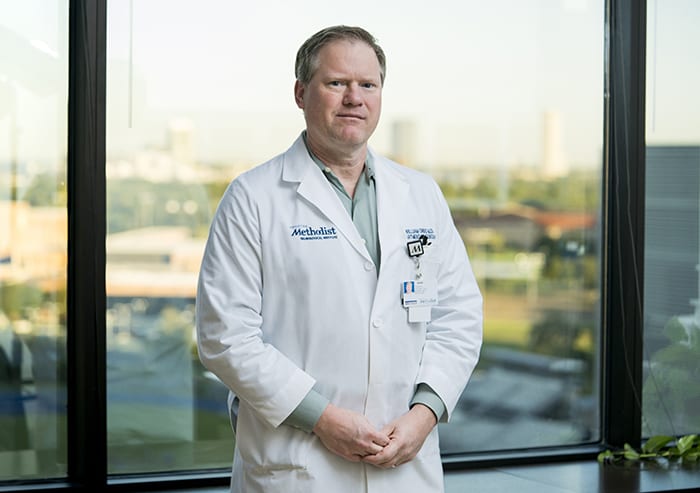
Background Information
William Ondo, M.D. is Director of the Movement Disorder Clinic, Department of Neurology, at Houston Methodist Hospital. He has been in practice for 30 years and specializes in the diagnosis, treatment, and research of Parkinson’s disease, essential tremors, the use of botulinum toxins in treating movement disorders, restless legs syndrome, and other movement disorders. He has authored more than 275 original articles and book chapters and has edited three books on movement disorders. Dr. Ondo earned his medical degree from the Medical College of Virginia before completing an internship at the University of North Carolina Hospital, a neurology residency at Duke University, and a movement disorders fellowship at the Baylor College of Medicine. He is board certified by the American Board of Psychiatry and Neurology in adult neurology and sleep medicine. He is a past president of the Tremor Research Group.
Five Questions
How did you decide to become a neurologist, and especially a movement disorder specialist?
I had no long-standing notion that I wanted to be a neurologist prior to medical school. I simply found the brain to be the most interesting aspect of medicine. Thirty years ago when I decided to be a neurologist it was not a very popular field to enter because there were fairly limited therapeutic options and people thought of it as somewhat dismal. These days, however, there is a much larger group of people interested in neurology as the field has advanced considerably over the past few decades.
Likewise, I did not decide to go into movement disorders until I was two thirds through my neurology residency. I simply like being able to see the problem and movement disorders had, and still has, the best therapeutic options of any field within neurology.
What are the more significant challenges you face when treating patients who have Parkinson’s, and how do you seek to meet these challenges?
Parkinson’s disease is one of the most heterogeneous conditions and has an enormous number of symptoms that are related to it. Many of these symptoms are quite treatable, so one of the big challenges is simply getting a large amount of information on such things as bladder problems, constipation, cognitive problems, mood problems, psychosis issues, fatigue problems, sleep problems, as well as a detailed pattern of tremor, walking, lack of dexterity, and dyskinesia (involuntary movements). Since all these things have treatment options, you have to query these thoroughly. This can take some time.
What gives you hope with respect to better Parkinson’s treatments and outcomes?
There are few medical conditions that have as many investigational therapeutic options as Parkinson’s disease. For better or worse, companies have decided that Parkinson’s disease can be profitable and therefore dedicate a considerable amount of resources to research. Many of these efforts result in incremental improvements or convenience improvements, but there still is considerable novel and exciting research ongoing about causes of Parkinson’s and how to rectify them. This has led to trials for novel small molecule drugs, gene therapies, and antibody therapies against proteins, as well as to several interesting novel surgical treatments. There are more than 40 treatments undergoing clinical trials in Parkinson’s patients with no shortage of ideas for additional projects. The Holy Grail is to slow the underlining disease progression. Currently, some of the gene therapies and antibody therapies are evaluating this possibility. There are also several regular drugs focused on this possibility; however that strategy has been discouraging over the past 30 years. It may be that we need multiple drugs used as a cocktail to actually slow or reverse Parkinson’s disease. That approach, unfortunately, is not conducive to our system where one company tends to own one drug.
What has surprised you most about working with those who have Parkinson’s?
I have seen thousands of patients with Parkinson’s disease over the last 30 years. Every time I think I’ve seen everything, I am proven wrong.
What wisdom would you offer someone wanting to know how best to live with this disease?
No two people with Parkinson’s disease are the same. In general, we certainly would advocate taking control of your disease aggressively, seeking the most cutting-edge care, and doing what you can do yourself, most importantly exercise, to improve your condition. I realize that no two people would go about this the same way, so my purely pragmatic advice would be to write down a list of your problems before you see your doctor, so you don’t forget anything and they are forced to address everything.
__________
Thank you, Dr. Ondo, for speaking with PD Wise.
